Navigating Property Laws and Regulations in Nigeria: A Comprehensive Guide
Nigeria’s real estate market offers vast opportunities for both local and international investors, but navigating the complex legal framework surrounding property transactions can be challenging. Whether you are buying land, residential property, or commercial real estate, understanding the relevant property laws and regulations is essential to ensuring that your investment is secure, legal, and free of encumbrances.
From property titles to taxes and dispute resolution mechanisms, there are several key legal aspects that anyone involved in a real estate transaction in Nigeria must understand. This comprehensive guide will walk you through the most important property laws and regulations in Nigeria, helping you make informed decisions and avoid potential legal pitfalls.
1. Understanding Property Ownership in Nigeria
In Nigeria, property ownership is governed by two primary categories: freehold and leasehold.
Freehold Ownership
Freehold ownership refers to full, permanent ownership of land or property. This means that the owner has unrestricted rights to the property, which can be transferred, sold, or inherited. However, freehold ownership is primarily available in non-government lands, and it is essential to ensure that the title documents are clear and free from disputes.
Leasehold Ownership
Most land in Nigeria, especially in urban areas, is owned by the government. This includes land in cities like Lagos, Abuja, and Port Harcourt. A leasehold is essentially a long-term lease granted by the government or another landowner, typically for a period of 99 years or 50 years, depending on the terms of the agreement. Leasehold rights can be renewed upon expiration, but they are not permanent.
The Certificate of Occupancy (C of O) is a key legal document for leasehold properties, as it proves that the land has been allocated to the owner by the government.
2. Key Property Documents in Nigeria
When buying or investing in property in Nigeria, certain documents are required to establish legal ownership and protect your rights. Understanding these documents is crucial to avoiding fraudulent transactions and ensuring that the property is free from encumbrances. Some of the most important documents include:
Title Documents
The title document is the legal proof of ownership of a property. In Nigeria, the most important title documents include:
- Certificate of Occupancy (C of O): This is issued by the state government and grants the holder the right to occupy the land. It is the most widely recognized form of land title in Nigeria and is usually issued for leasehold properties.
- Deed of Assignment: This is used when transferring ownership from one party to another. It’s particularly relevant when purchasing land or a property that already has a C of O.
- Governor’s Consent: If you are purchasing land in Lagos or other states where the government owns the land, you must obtain the Governor’s Consent to transfer ownership legally. Without this consent, the sale is not legally binding, and the title can be disputed.
- Survey Plan: A survey plan shows the exact boundaries of the land or property being purchased. It is often required when registering the title with the land registry.
Land Title and Deeds
- Land Registry Documents: When purchasing land, it’s important to check the land registry to confirm ownership and verify that there are no encumbrances or disputes.
- Receipt of Payment: Always request a receipt of payment from the seller once you make a payment toward a property. This document helps validate the transaction and provides proof of ownership.
3. The Land Use Act of 1978
The Land Use Act of 1978 is the cornerstone of property law in Nigeria. The Act regulates land ownership and usage, particularly in urban areas. Under the Act, all land in Nigeria is vested in the state government, which holds the land in trust for the people. The government can allocate land to individuals, companies, and organizations for specific uses, such as residential, commercial, or industrial purposes.
Key Provisions of the Land Use Act
- State Ownership: The government has ultimate control over land in Nigeria. Individuals or companies can lease land from the state government but cannot own it outright, especially in urban areas.
- Land Allocation: Land in urban areas is generally allocated through a leasehold system, with lease periods ranging from 50 to 99 years. The government may also grant land to individuals or organizations for agricultural or industrial use in rural areas.
- Land Compensation: If the government acquires land for public use, it is obligated to compensate the owner. This can happen if the land is needed for infrastructure projects or development.
4. Legal Process of Buying Property in Nigeria
The legal process of buying property in Nigeria is not always straightforward, and it’s essential to understand the steps involved to protect your investment. Here’s a general overview of the legal process:
Step 1: Property Search and Due Diligence
- Verification of Ownership: Before purchasing any property, it’s important to verify that the seller is the legitimate owner of the property. This involves checking the title document (such as the C of O) at the state land registry to confirm the seller’s ownership.
- Land Encumbrances: Check for any encumbrances or legal disputes related to the property. This includes issues such as unpaid land use charges, mortgage claims, or ongoing court cases that may affect the property.
Step 2: Agreement and Payment
Once you’ve verified ownership and completed due diligence, you can proceed to negotiate the purchase price and enter into a sale agreement with the seller. This agreement should be drawn up by a qualified real estate lawyer and must include:
- The agreed price
- Payment terms (whether full payment upfront or installment-based)
- A timeline for the transfer of ownership
- Any warranties or guarantees provided by the seller
Step 3: Payment and Transfer of Ownership
After agreeing to the terms, you will make the payment, either as a lump sum or in installments, depending on the agreed terms. Once the payment is made, the ownership of the property is officially transferred.
Step 4: Registering the Title
To complete the legal transfer, the title documents must be registered with the relevant government authority (usually the Land Registry). If you are purchasing land with a C of O, you must also obtain Governor’s Consent before the property is legally transferred to your name.
5. Property Taxes and Levies in Nigeria
In Nigeria, property ownership comes with certain tax obligations, which vary depending on the state and the type of property you own. Common property-related taxes include:
Stamp Duty
Stamp duty is a tax paid on legal documents related to property transactions, such as sale agreements, deeds of assignment, or leases. The rate of stamp duty is typically 1% of the property’s purchase price.
Land Use Charges
Land use charges are levied by state governments for the use of land within their jurisdiction. These charges can vary based on the location of the property and the land’s purpose (residential, commercial, etc.).
Property Tax
In some states, property owners are required to pay an annual property tax. The amount varies depending on the location, size, and value of the property.
6. Property Disputes and Resolution Mechanisms
Property disputes are common in Nigeria, and they can arise due to unclear ownership, land encroachments, or disagreements with landlords or tenants. To resolve these disputes, property owners can turn to:
- The Courts: Legal disputes related to property ownership, boundary issues, and land use are typically settled in civil courts. Courts in Nigeria have jurisdiction over property matters, but legal proceedings can be lengthy and costly.
- Alternative Dispute Resolution (ADR): Many property-related disputes are resolved through alternative methods such as arbitration or mediation, which are often faster and less expensive than going to court.
7. Avoiding Property Frauds in Nigeria
Property fraud is unfortunately common in Nigeria, and as an investor, you must be vigilant. Common types of property fraud include:
- Fake land titles: Fraudsters may present forged title documents or fake certificates of occupancy.
- Double sale: Some property owners may sell the same property to multiple buyers.
- Land encroachment: Fraudsters may sell land that is already occupied or illegally claim ownership of land.
To avoid these risks, always conduct thorough due diligence, engage a qualified real estate lawyer, and verify all documents with the relevant authorities before proceeding with any property transaction.
Conclusion
Navigating property laws and regulations in Nigeria is crucial to ensuring that your investment is secure and free from legal challenges. Understanding the legal framework surrounding property ownership, transaction processes, taxes, and dispute resolution mechanisms will help you avoid costly mistakes and ensure that your property dealings are legally sound.
Before making any real estate investment in Nigeria, always seek professional legal advice from a qualified real estate lawyer, verify ownership documents, and ensure that all necessary approvals and consents are obtained. With the right knowledge and legal guidance, you can confidently navigate Nigeria’s real estate market and enjoy the benefits of property ownership and investment.

